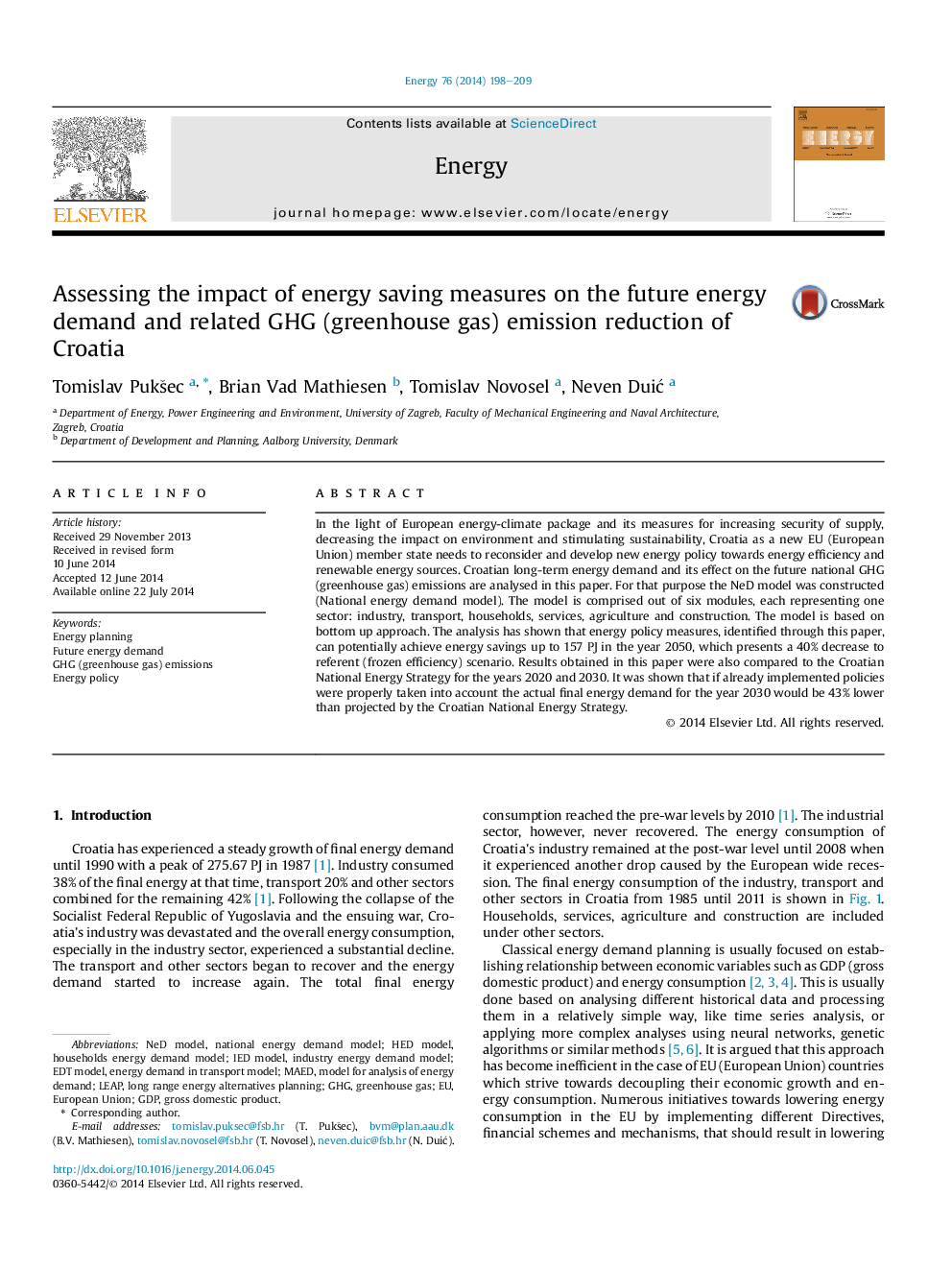| Article ID | Journal | Published Year | Pages | File Type |
|---|---|---|---|---|
| 8076592 | Energy | 2014 | 12 Pages |
Abstract
In the light of European energy-climate package and its measures for increasing security of supply, decreasing the impact on environment and stimulating sustainability, Croatia as a new EU (European Union) member state needs to reconsider and develop new energy policy towards energy efficiency and renewable energy sources. Croatian long-term energy demand and its effect on the future national GHG (greenhouse gas) emissions are analysed in this paper. For that purpose the NeD model was constructed (National energy demand model). The model is comprised out of six modules, each representing one sector: industry, transport, households, services, agriculture and construction. The model is based on bottom up approach. The analysis has shown that energy policy measures, identified through this paper, can potentially achieve energy savings up to 157Â PJ in the year 2050, which presents a 40% decrease to referent (frozen efficiency) scenario. Results obtained in this paper were also compared to the Croatian National Energy Strategy for the years 2020 and 2030. It was shown that if already implemented policies were properly taken into account the actual final energy demand for the year 2030 would be 43% lower than projected by the Croatian National Energy Strategy.
Related Topics
Physical Sciences and Engineering
Energy
Energy (General)
Authors
Tomislav PukÅ¡ec, Brian Vad Mathiesen, Tomislav Novosel, Neven DuiÄ,
